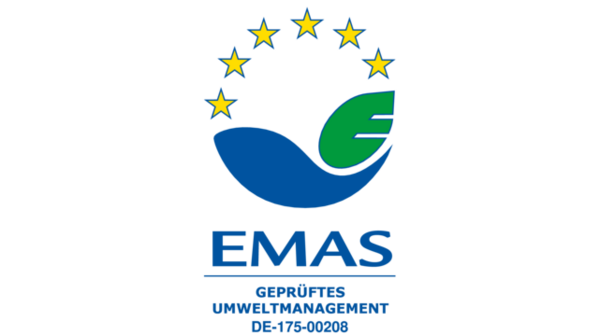High-Performance Computing Center Stuttgart

HLRS's systems for environmental and energy management cover all levels of the organization, addressing topics such as energy usage, resource consumption, and waste disposal. Activities that have negative impacts for the environment or human health are avoided, while employees across the organization are involved in identifying and implementing opportunities for improving environmental performance. In addition, these certifications recognize policies at HLRS that include:

ISO 14001 is an internationally recognized standard for the implementation of a comprehensive sustainability management system. ISO 14001 certification is a central component of EMAS. In contrast to EMAS, this standard does not detail specific requirements for environmental performance and does not require an environmental statement. Learn more about ISO 14001
This international norm supports companies and organizations in the development of a systematic energy management system aimed at improving energy efficiency, reducing energy usage, and promoting adherence to legal requirements. At HPC centers like HLRS, which require large amounts of power for the operation and cooling of their computers, this means committing to implement measures that will minimize carbon emissions and consumption of nonrenewable resources. At HLRS this has involved setting targets for energy usage, tracking actual energy consumption, and making infrastructure improvements to optimize energy efficiency. Learn more about ISO 50001.